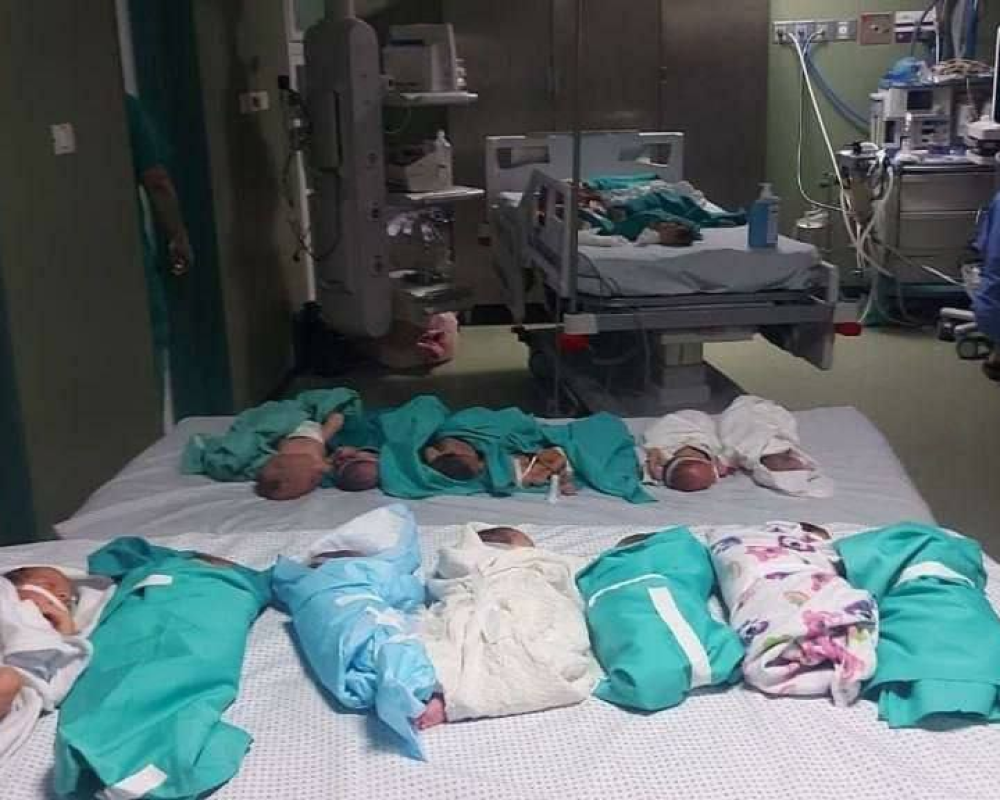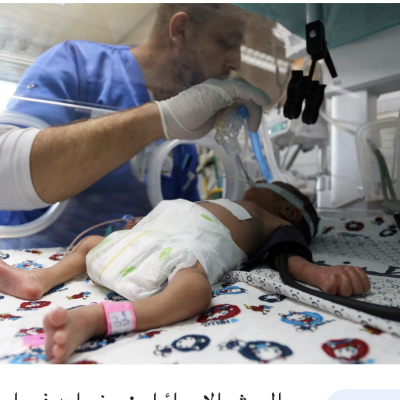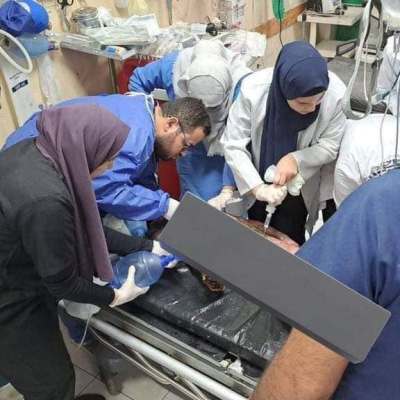
Gaza /PNN /
Despite Facing Fuel Shortages and Power Outages, Al-Awda Hospital Continues to Operate, Delivering Babies Against All Odds
Amid the ongoing crisis in Gaza, Al-Awda Hospital, the last operational facility in northern Gaza, is delivering babies and providing crucial medical care despite severe challenges. With no electricity or fuel for the past three days, the hospital relies on batteries to continue its operations.
Over the weekend, the dedicated medical staff at Al-Awda performed 16 caesarean sections and delivered between 18 and 20 babies daily, despite the lack of essential medical supplies, including anesthesia. With other hospitals in the region closed, Al-Awda has become a lifeline for pregnant women seeking urgent care.

A senior doctor from Al-Awda Hospital shared, “We are providing maternity services in the northern area. Today we received many patients – pregnant women from Gaza City – because the hospitals are closed. We delivered 16 caesarean sections today in Al-Awda Hospital. We are now receiving about 18-20 newborn deliveries every 24 hours.”
The hospital's challenges include shortages of medical supplies, medications, and emergency drugs, but the staff is resilient, managing the crisis as best they can. Despite these difficulties, they remain committed to providing crucial services to the community.
The broader situation for hospitals in Gaza is dire, with intense attacks since Friday rendering 22 of Gaza’s 35 hospitals, including major facilities like Al-Shifa and Al-Quds, non-operational due to bombings or fuel depletion. Al-Shifa hospital is struggling with power cuts, resulting in the deaths of three newborns, and the remaining infants are at risk. At least 32 patients have died at Al-Shifa, and the situation is further compounded by the inability to bury bodies due to ongoing shelling.
Riham Jafari, Coordinator of Advocacy and Communication for ActionAid Palestine, emphasized the urgency of the situation, stating, “Thousands of women in Gaza are risking their lives to give birth, undergoing caesareans and emergency operations without sterilization, anesthesia, or painkillers. These women deserve quality healthcare and the right to give birth in a safe place.”

She added, "Only an immediate ceasefire will ensure that enough fuel and medical supplies can enter Gaza and reach hospitals so they can start providing life-saving care once more. Hospitals are not and must never be targets; these safe havens have a protected status under international humanitarian law, and this must be respected."
ActionAid in Palestine (AAP) is a part of global federation working for social justice and gender equality and eradicate poverty in more than 70 countries around the world. AAP started its work in Palestine in 2007 to strengthen the resilience of Palestinian People as ActionAid believes that they should enjoy their rights to freedom, justice and self-determination. AAP implements a number of programs through its engagement with communities and women and youth groups seeking to empower them and enhance their influential civil and political participation to understand their rights and undertake collective activism to address the protracted rights violations resulting from the prolonged occupation of Palestine. AAP works simultaneously to enhance their leadership capacity and knowledge to practice their citizenship in holding authorities and other duty bearers to account.